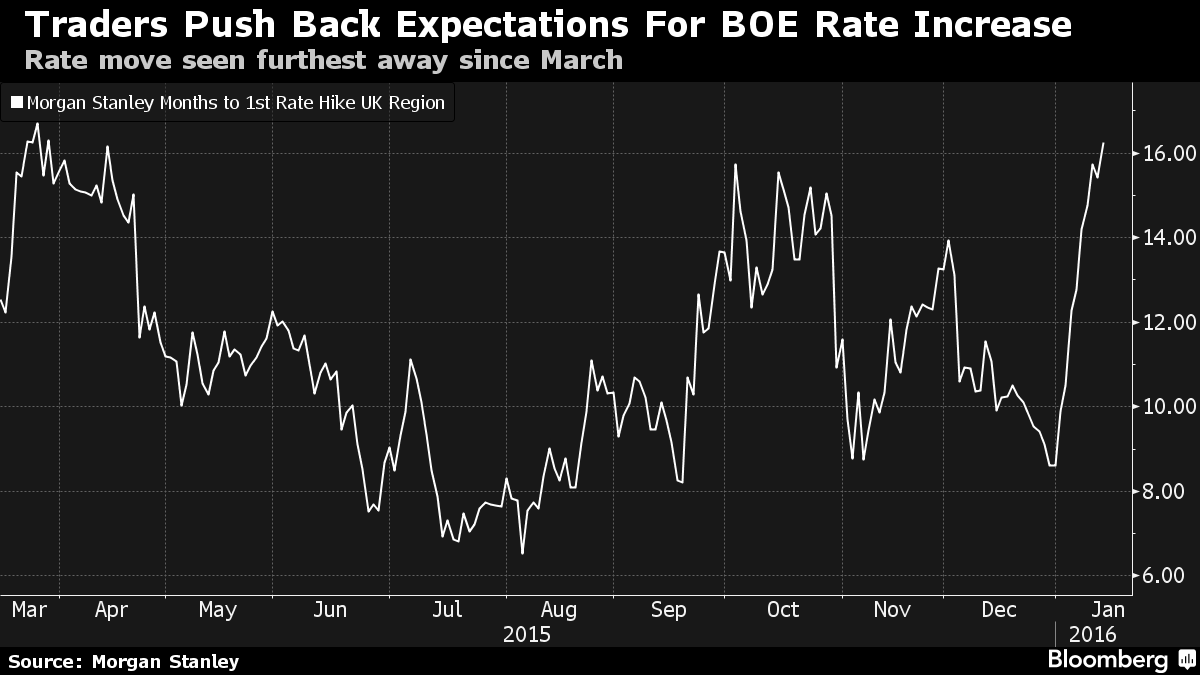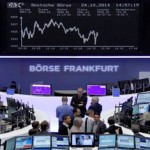U.K. Markets Pounded and ‘Brexit’ Vote Doesn’t Even Have a Date
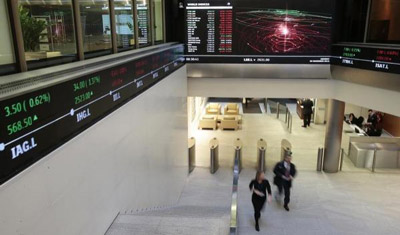
-
Pound, stocks decline as risks to U.K. economy stack up
-
Turmoil is hurting outlook for Bank of England rate increase
Wherever you look, Britain’s financial markets are creaking.
The pound is at the weakest level since 2010 against the dollar and on its worst-ever weekly losing streak against the euro. The FTSE 100 index of shares has fallen to the lowest since 2012 and the bond market’s inflation outlook is the worst since 2009. Against that backdrop, futures traders have pushed back expectations for a Bank of England rate increase by about eight months since the turn of the year, according to a Morgan Stanley index.
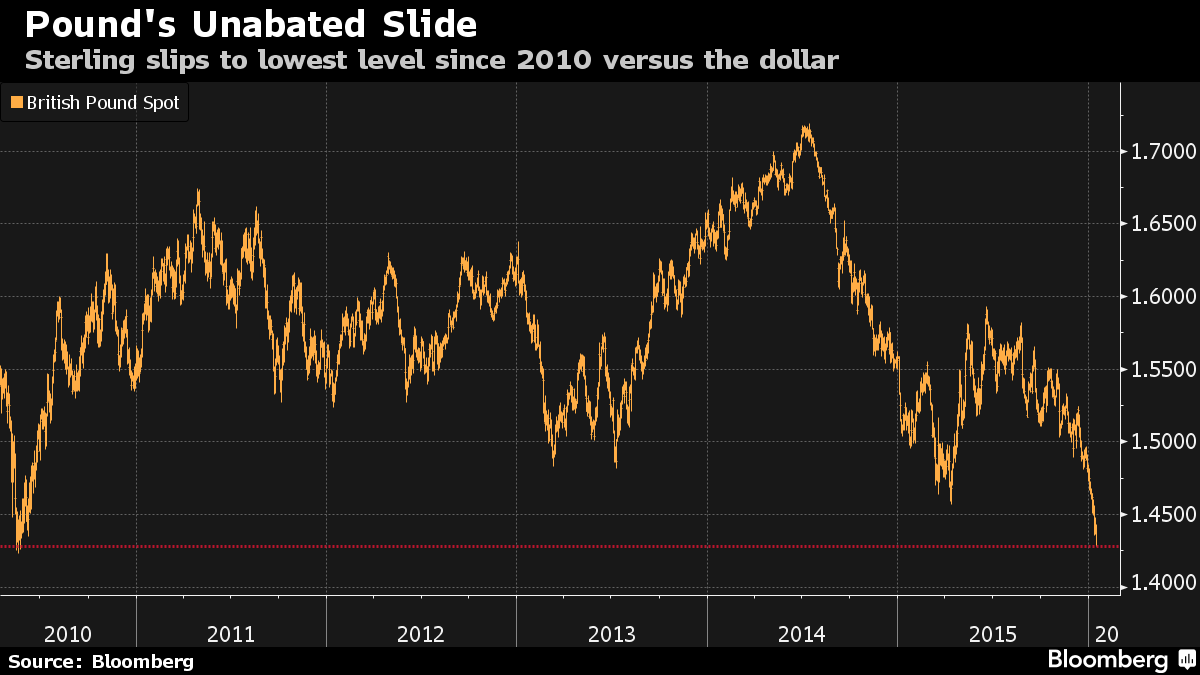
U.K. assets are being hurt by a litany of woes including falling commodity prices and an uneven economic recovery. Investors are also preoccupied by the risks of a possible exit from the European Union, even if the full details of the vote, including the date itself, are yet to be defined.
“It’s very difficult to say right now that we’re at the end because of the politics — it’s not just about economics and interest-rate differentials,” said Jane Foley, a senior foreign-exchange strategist at Rabobank International in London. “The referendum has really amplified the bad news on the economic front.”
Lawmakers and companies are also concerned. Chancellor of the Exchequer George Osborne warned last week that a “dangerous cocktail” of global threats faces the British economy, while Michael Rake, chairman of BT Group Plc, and Barclays Plc Chairman John McFarlane have become the latest business leaders to warn that the “Brexit” debate has already cost the U.K. foreign investment.
Cutting Forecasts
Those concerns are causing analysts to cut forecasts for the pound against the dollar, even as it languishes at an almost six-year low. Commerzbank AG, ING Bank NV and Credit Suisse Group AG have lowered their sterling outlooks in the past two days, helping push the median year-end forecast among analysts surveyed by Bloomberg to $1.50, the lowest since June. The currency touched $1.4265 on Friday, the weakest since May 2010.
Against the euro, things look little better. The pound suffered an eighth week of declines this week, its longest losing streak since the shared European currency’s 1999 debut, reaching 76.95 pence on Friday, the weakest level since Jan. 21, 2015.
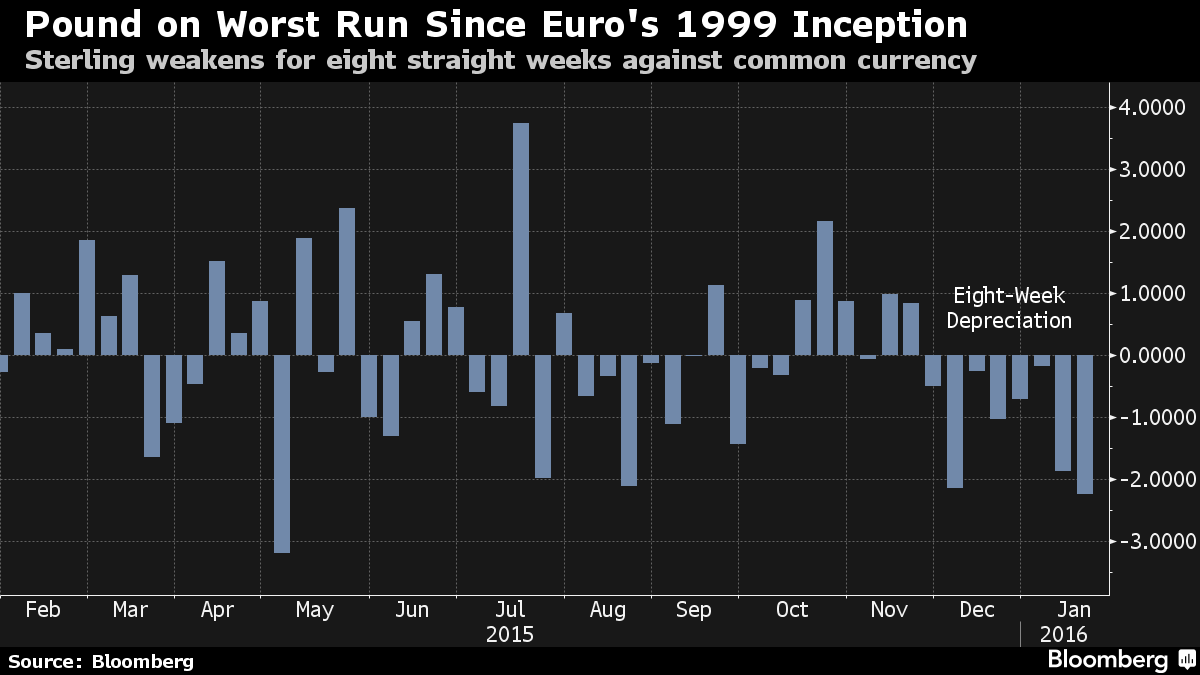
The same factors, exacerbated by turmoil in China and declines in commodity prices, are hurting the FTSE 100. Miners have led losses this year and jobs in the steel industry are under threat.
The FTSE, which is down 7 percent this year, closed at 5,804.10 on Friday, the lowest since November 2012. At that time, there were concerns the U.K. was headed for a so-called triple-dip recession, even though subsequent revisions showed growth was better that initially reported.
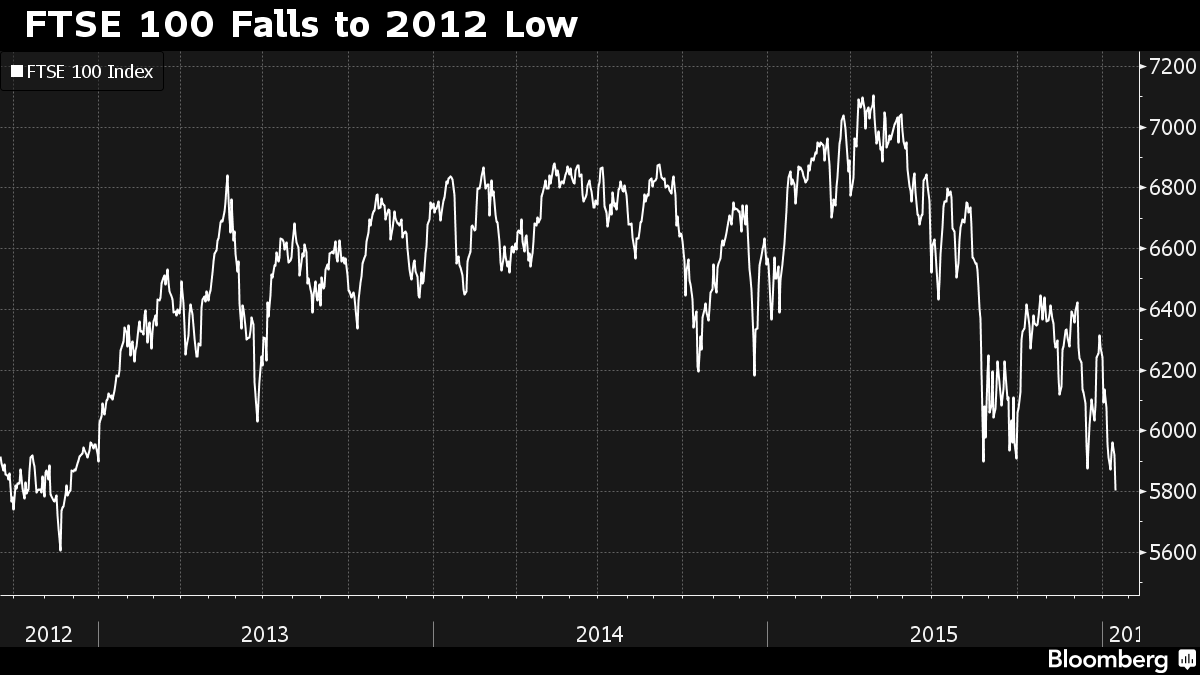
While U.K. government bonds have risen this year, bucking the trend thanks to their position as a haven, they paint a bleak picture for the outlook for inflation. A market gauge of retail-price inflation expectations over the next decade dropped to the least since 2009 on Friday as crude oil slumped to a 12-year low. Data on Jan. 19 will show the U.K. inflation rate was at 0.2 percent in December, according to economists surveyed by Bloomberg.
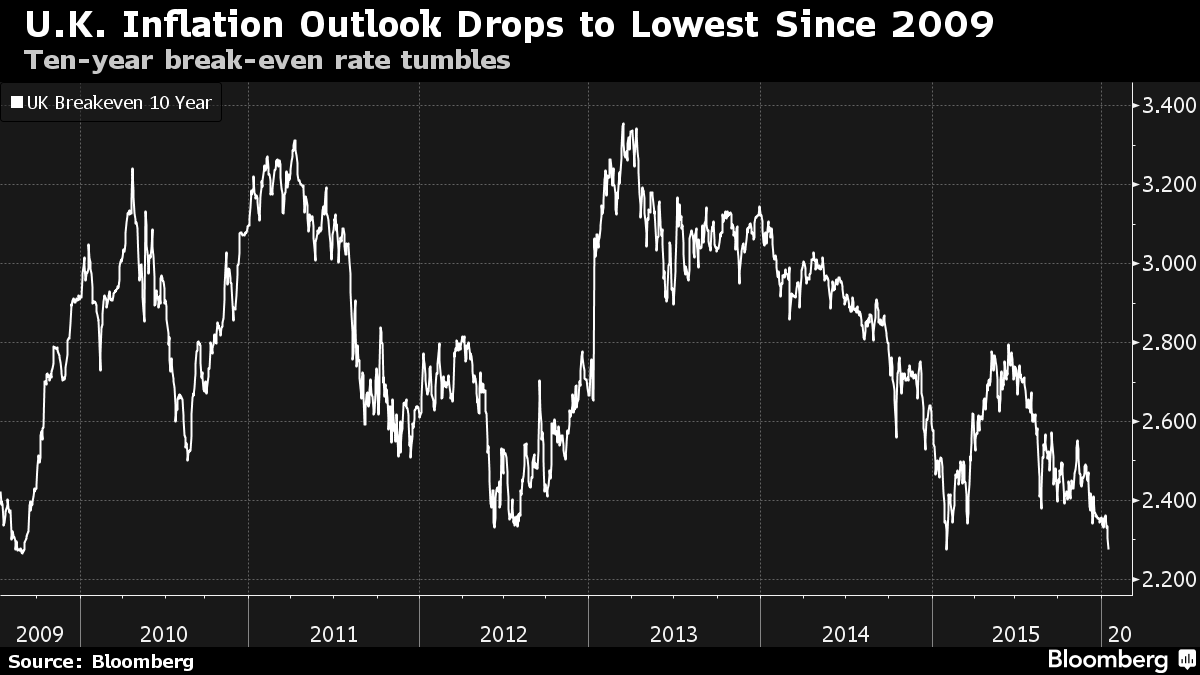
As the outlook for inflation weakens, traders are pushing out their forecasts for when the BOE will lift interest rates from a record low. This Morgan Stanley index shows investors expect no increase for the next 16 months. As recently as August, it was showing expectations for an increase early in 2016.
Source: Bloomberg – U.K. Markets Pounded and ‘Brexit’ Vote Doesn’t Even Have a Date









